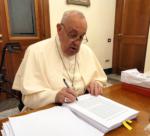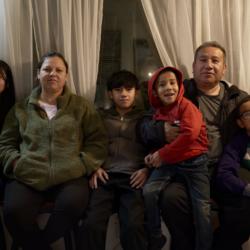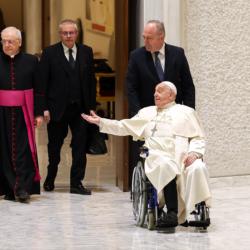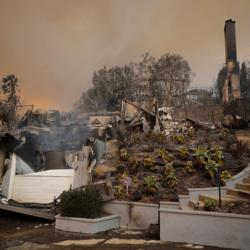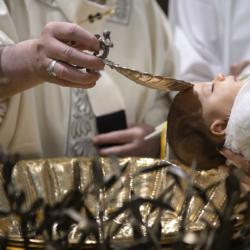Natural Family Planning (NFP) Awareness Week marked nationwide
Natural Family Planning (NFP) Awareness Week, a national educational campaign of the United States Conference of Catholic Bishops, was celebrated this week.
This annual campaign celebrates God's design for married love and raises awareness of Natural Family Planning (NFP) methods. The slogan for this year's NFP Awareness Week, "All Natural! Good for the body. Great for the Soul," was inspired by Pope Francis' recently released encyclical "Laudato Si," in which the Holy Father emphasizes the beauty and importance of developing an ecology that encompasses all of creation, including man.
Natural Family Planning (NFP) is an umbrella term for several safe, natural and effective methods that can be used for both achieving and avoiding pregnancy.
Those who teach NFP stress that it is true family planning. NFP is not the "Rhythm" or Calendar Method. Unlike this method, NFP methods take into account cycle variations and the unique nature of a woman's menstrual cycle. NFP methods teach couples how to observe and interpret the woman's signs of fertility and infertility. The accuracy of women's observations has been validated by scientific research.
NFP is a holistic approach to family planning that is not contraceptive, for it does nothing to suppress or block conception. Instead, couples adjust their behavior according to their family planning intent using the naturally occurring signs and symptoms of a woman's cycle.
Successful use of NFP requires a couple to communicate. In the daily charting couples quickly appreciate their shared responsibility for family planning. Husbands are encouraged to "tune into" their wives cycles, and both spouses are encouraged to speak openly to each other about their fertility, emotions and family planning intention. Those who practice NFP say it can enrich the bond between husband and wife and promotes the understanding of "self-donation" between spouses.
In the Archdiocese of Boston, couples have access to instruction in all methods of NFP. In addition, specialized services are available for couples living with reproductive disorders and for both the post-partum and peri-menopausal times of transition.
For more information about NFP and archdiocesan services and programs, please visit bostoncatholic.org/nfp.







